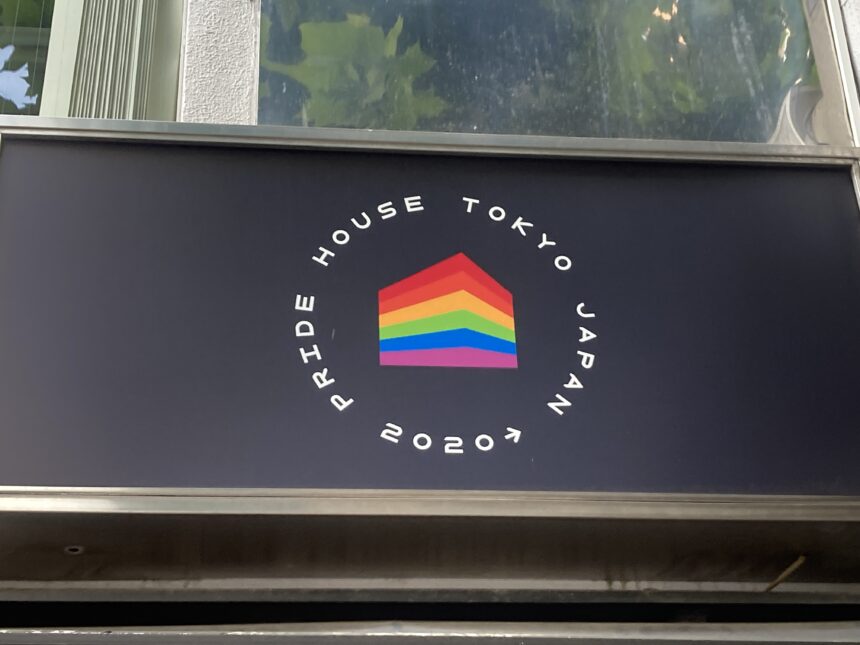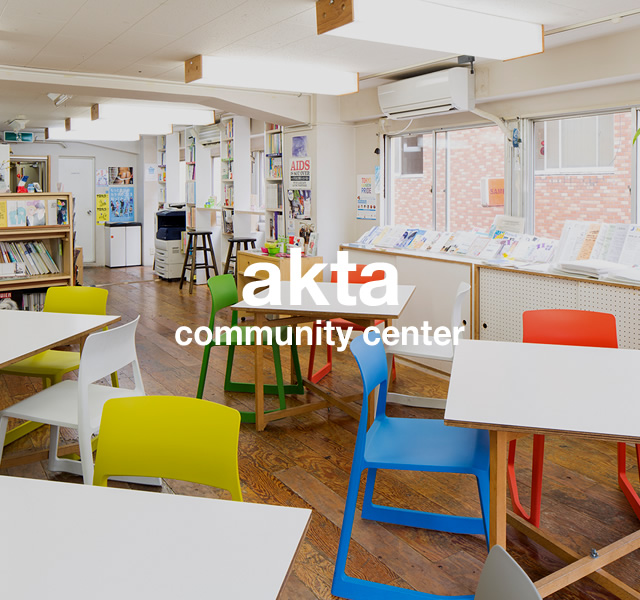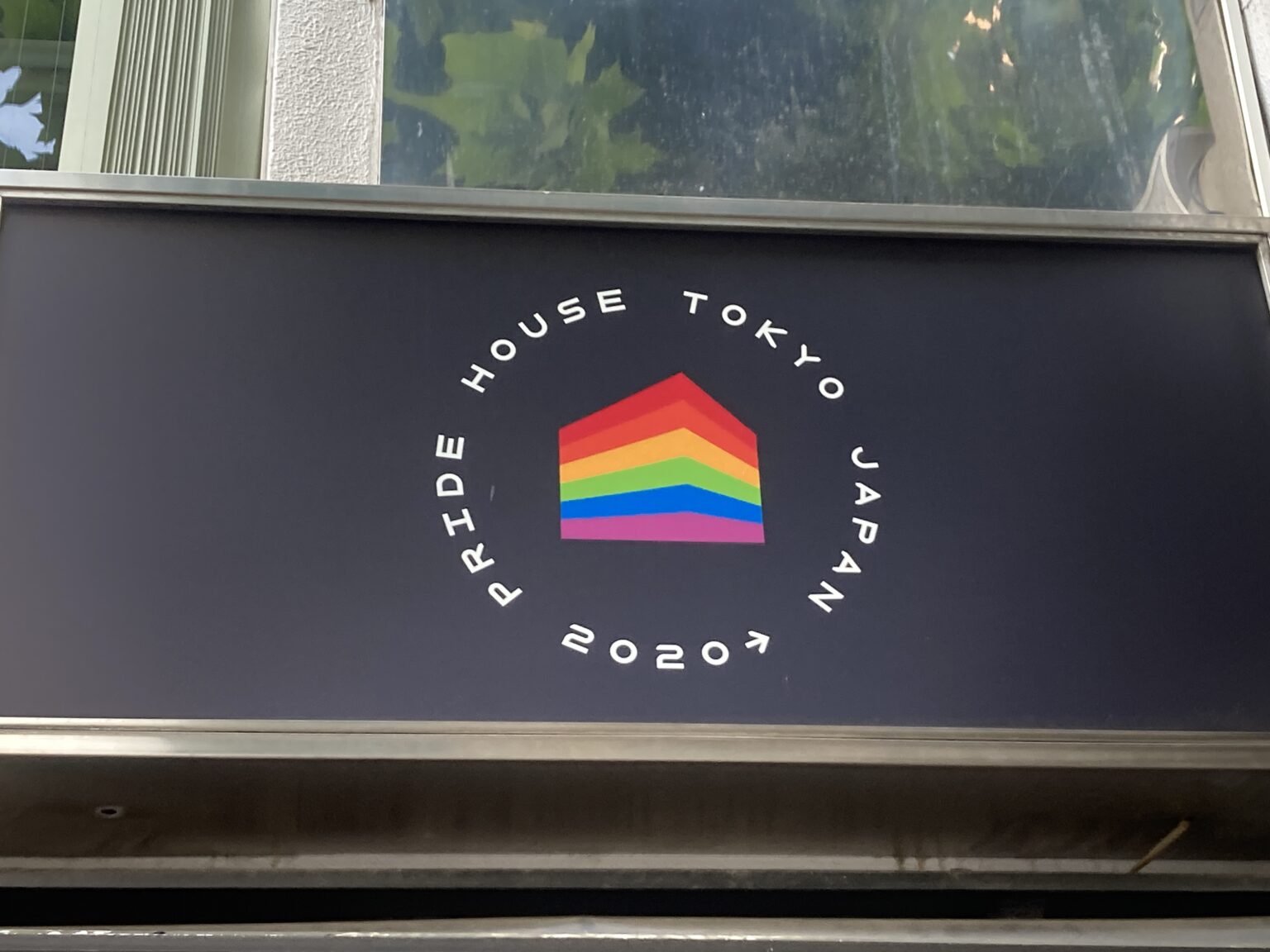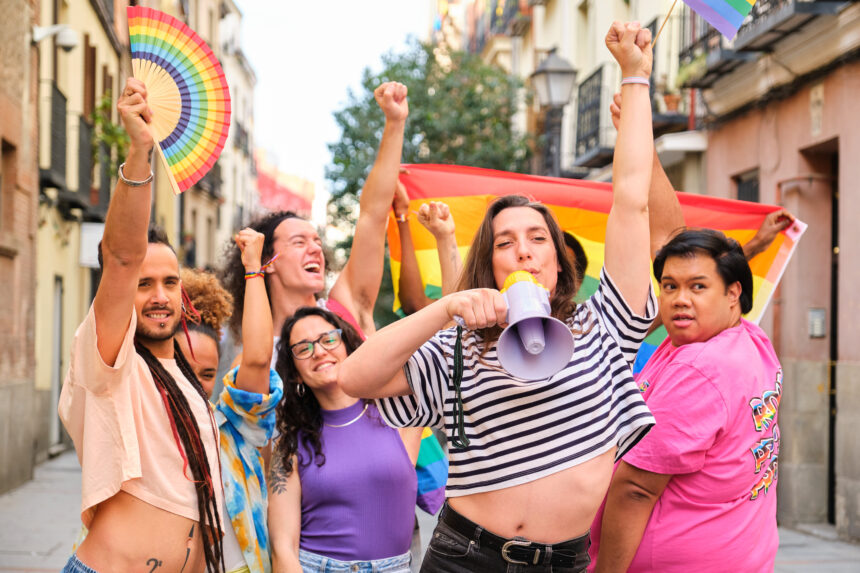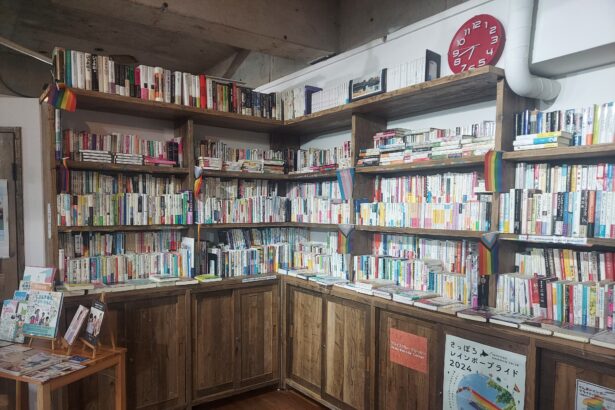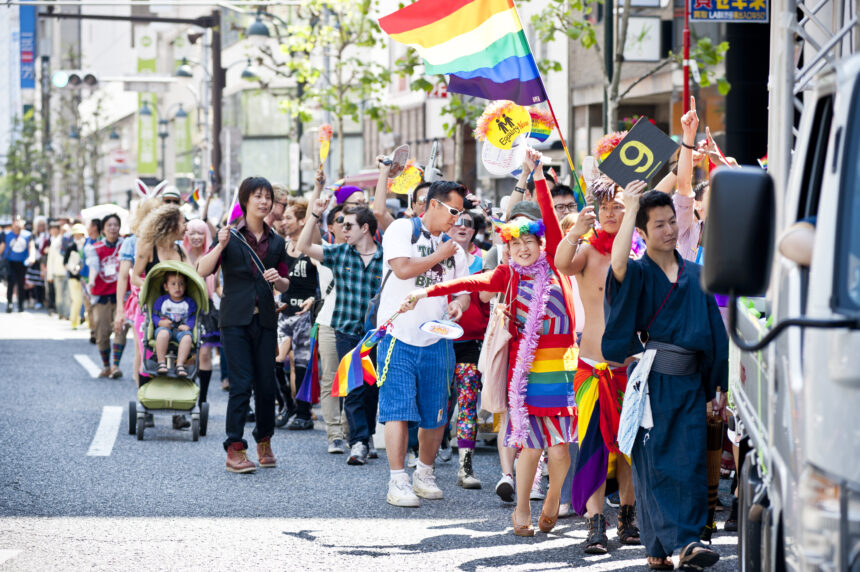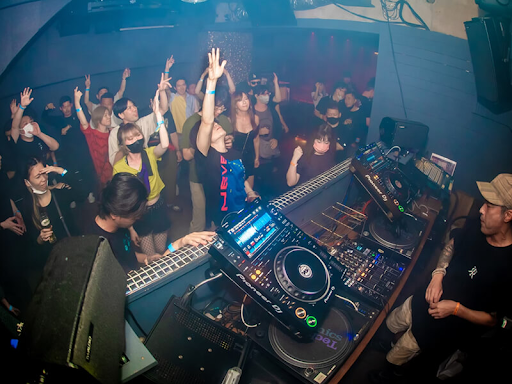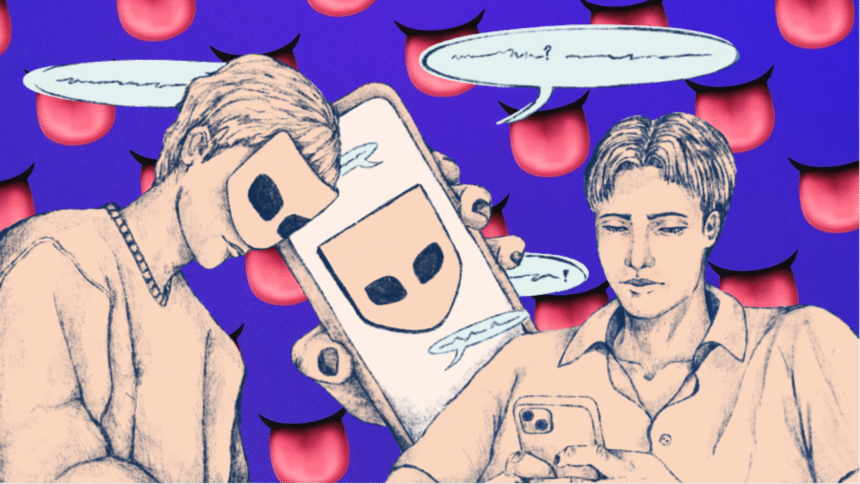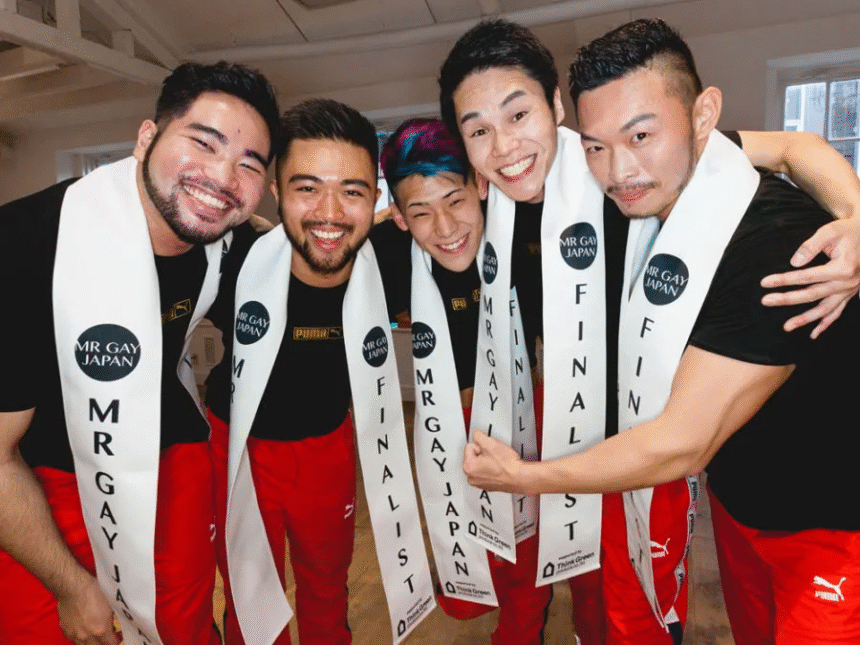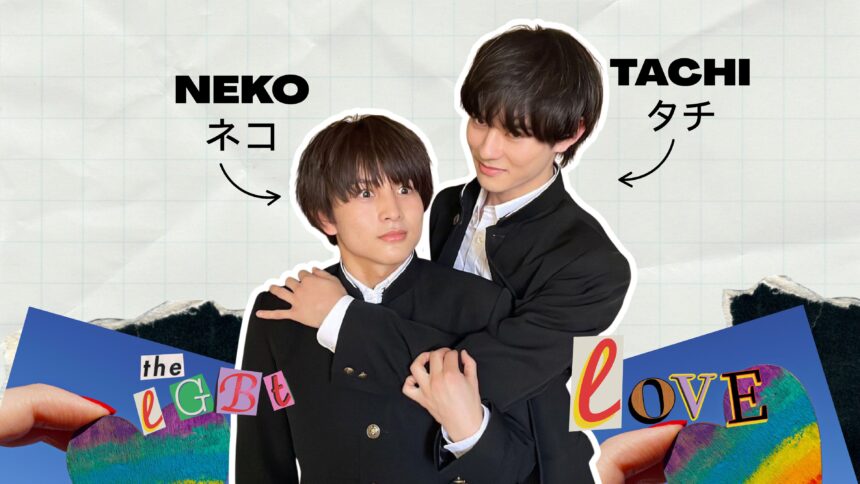Tokyo has played host to a whole tapestry of LGBTQ+ pride-related events and advocacy efforts over the years. From the first pride parade in the early ‘90s to the queer dance parties of today, Tokyo pride boasts a long and rich history.
In this article, we’ll go over some of the main pillars of Tokyo pride, and hopefully give you a feel for each of them. After you’ve finished this guide, you’ll be able to choose for yourself which events are right for you, and tell your friends to save the date!
Tokyo Pride: History and Present
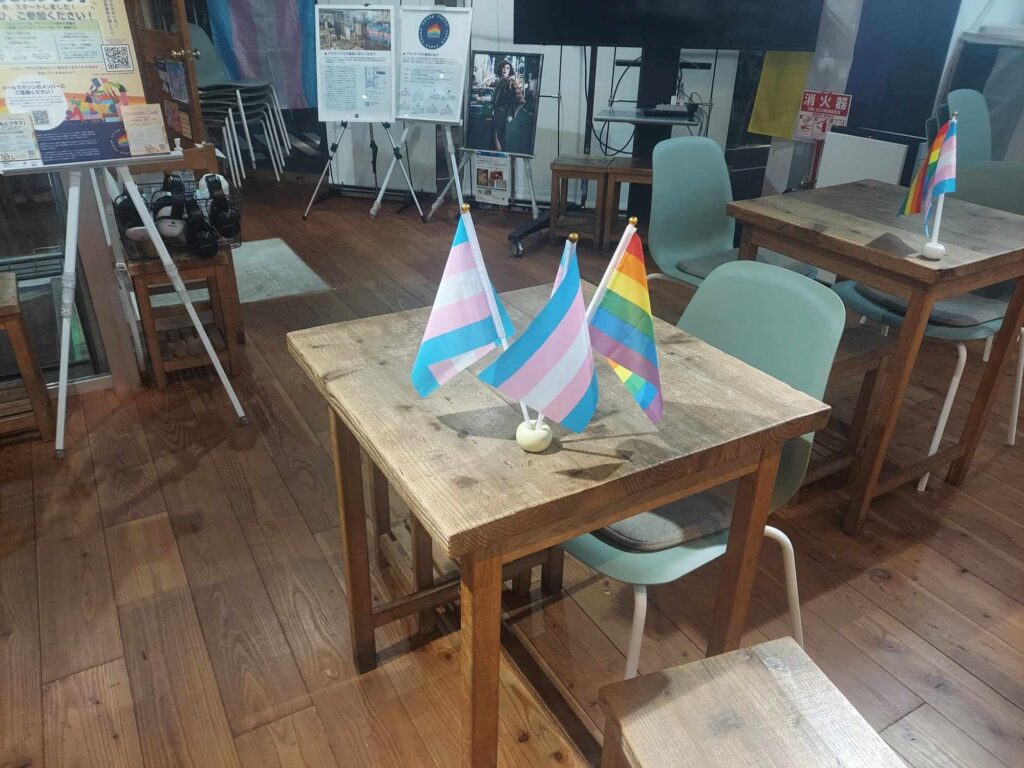
The first Tokyo pride parade was held in 1994, then known as the Tokyo Lesbian & Gay Parade, which was later changed to its current name, Tokyo Pride. Today, Tokyo Pride is not only a parade, but a week-long festival consisting of queer performers, activity booths, and guest speakers related to LGBTQ+ activism in Tokyo.
During Tokyo Pride 2024, which marked the 30th anniversary of the event, Teishiro Minami, a founding member of the first pride parade in Tokyo, was featured as a guest speaker. Minami is a Japanese editor, author, and human rights activist who not only helped found the first pride parade, but also started his own gay magazine, Adon, and founded the Japanese branch of the International Lesbian & Gay Association.
Today, there are a wide variety of pride-related events on offer, such as Rainbow Reel Tokyo, an international queer film festival that began in 1992, and continues to this day as a pillar of LGBTQ+ art and culture in the metropolis. In addition, queer outreach centers such as Pride House Tokyo and akta operate in the community to help people with their daily struggles and to be a community space where like-minded LGBTQ+ people can gather.
If you would like to know more about Tokyo Pride and its history, check out the article below.
Pride House Tokyo Legacy
Pride House Tokyo Legacy is an LGBTQ+ advocacy center in Tokyo that takes on many roles and caters to various groups of people in an effort to foster a stronger queer community.
The center was originally an outreach effort created for the 2020 Olympics and Paralympics in Tokyo. As one of the many “pride houses” set up at various major sporting events across the world, Pride House Tokyo received funding from major Japanese and international corporations.
After the games finished up, Pride House Tokyo found its permanent home only a short walk from Shinjuku Gyoenmae Station on the Marunouchi Subway Line and from Shinjuku Gyoen National Garden. This permanent space was renamed Pride House Tokyo Legacy.
Pride House Tokyo Legacy offers a wealth of programs and services to the queer community of Tokyo. From an open work and study space on Friday through Tuesday from 1pm to 7pm, to monthly opportunities to meet like-minded individuals such as Trans Day and Deaf Day, to the impressive selection of books related to LGBTQ+ topics available to read at the center. Pride House Tokyo Legacy also employs multilingual staff, including some who speak Japanese, English, Chinese, and Korean.
Another cool feature of Pride House Tokyo Legacy is that entry is completely free. And, in addition to that, the center runs a small cafe offering drinks such as tea, coffee, and cola. Your first drink at the cafe is free of charge, and any drink after that is available with a small donation.
Pride House Tokyo Legacy also offers professional counseling services in Japanese for a variety of life’s issues. They are also working to hire an English-speaking professional counselor but need more recurring monthly donations to be able to accomplish this. If you are interested in setting up a recurring donation to help them complete this goal, find more information here.
If you want to know more about Tokyo Pride culture, check out this article!
akta

Another important queer advocacy center in Tokyo is akta, a community center focused mostly on sexual health and education, specifically in helping to prevent the spread of HIV/AIDS. The center also hosts programs such as an English speaking pop-up cafe and queer art shows.
akta has a wealth of information on its website about prevention and warning signs of HIV/AIDS. In addition, they provide a weekly condom delivery service to bars and clubs all over Shinjuku Nichome, Tokyo’s LGBTQ+ district, to help encourage safe sex.
akta is also a community space that’s open Thursday through Sunday from 3pm to 9pm, where you can go to learn more about their advocacy efforts and about how to get involved more with the center. Check out their monthly calendar for more information!
Tokyo Pride & Parade
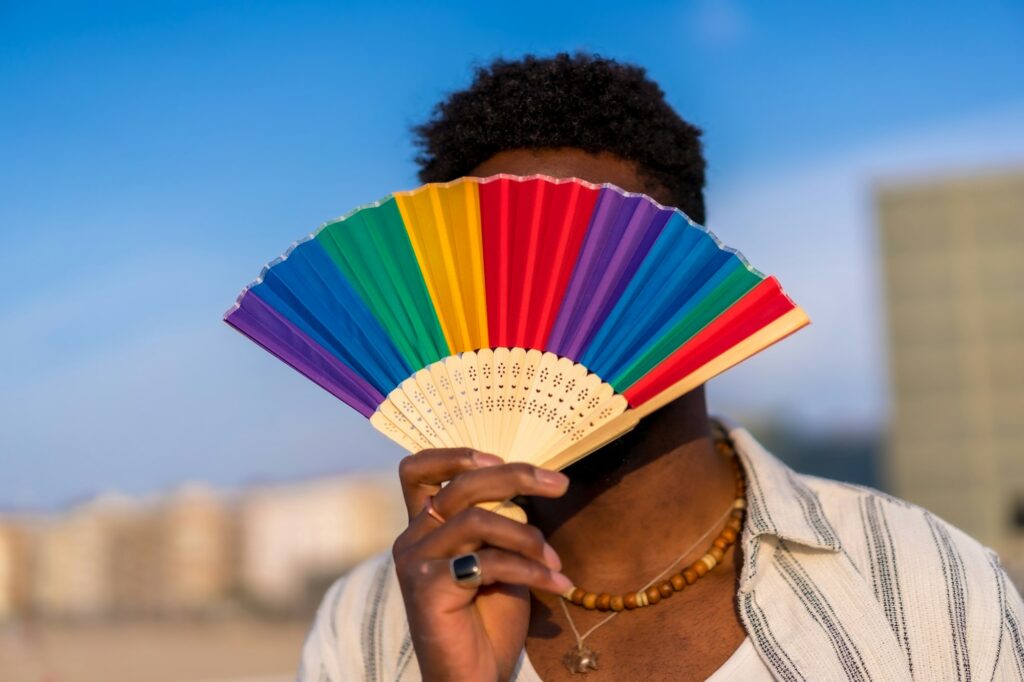
Tokyo Pride is one of the flagship LGBTQ+ pride events in Tokyo, and it has a long history as a cornerstone of its queer community. However, Tokyo Pride is not only a parade, but a week-long roster of festivities, ranging from guest speakers, to queer performers, to educational activity booths. Since performers and guest speakers for the event change every year, keep up-to-date on our website for the details of Tokyo Pride 2025.
The parade route itself stretches over three kilometers long and annually hosts around 1,100 people marching simultaneously. The rest of the festivities are usually held at Yoyogi Park in April, and culminate in the famous parade as a celebration wrapping up another year of Tokyo Pride. For more information about this famed festival, check out this article!
Tokyo Pride Beats 2025
However, the celebration isn’t over after the Tokyo Pride Parade. Directly following the parade, a popular queer music festival begins, allowing marchers to let off some steam!
Tokyo Pride Beats is a series of around six dance parties that take place over the span of about a week. The first one, the Happy Pride Tea Dance, begins right after the Tokyo Pride Parade and features a variety of music genres such as house, K-pop, J-pop, and Top 40.
The following five parties all feature their own unique theme and music style, and are held at a series of venues around Tokyo. Since Tokyo Pride Beats truly has something for everyone, keep up with Japan Gay Guide to find out more about Tokyo Pride Beats 2025!
If you want to know more information about Tokyo Pride and related events, check out this article.
Shaping a Bright Future for Tokyo Pride
Over the years, Tokyo pride has taken many forms, expressing itself in various events such as parades, music festivals and community outreach centers. Since LGBTQ+ pride means something a little bit different to each participant, it’s important to define it for yourself. You could even help to organize events in Tokyo, or in your hometown that could add your pride to the ever-growing tapestry.
The future of Tokyo pride looks to be bright. Since the 1990s, a thriving community of LGBTQ+ activists and individuals has made sure to show its true colors at pride events in the city. These folks are not going away any time soon, and as long as there are people willing to continue the work, LGBTQ+ pride will continue to prosper and bloom in various permutations across Tokyo.
